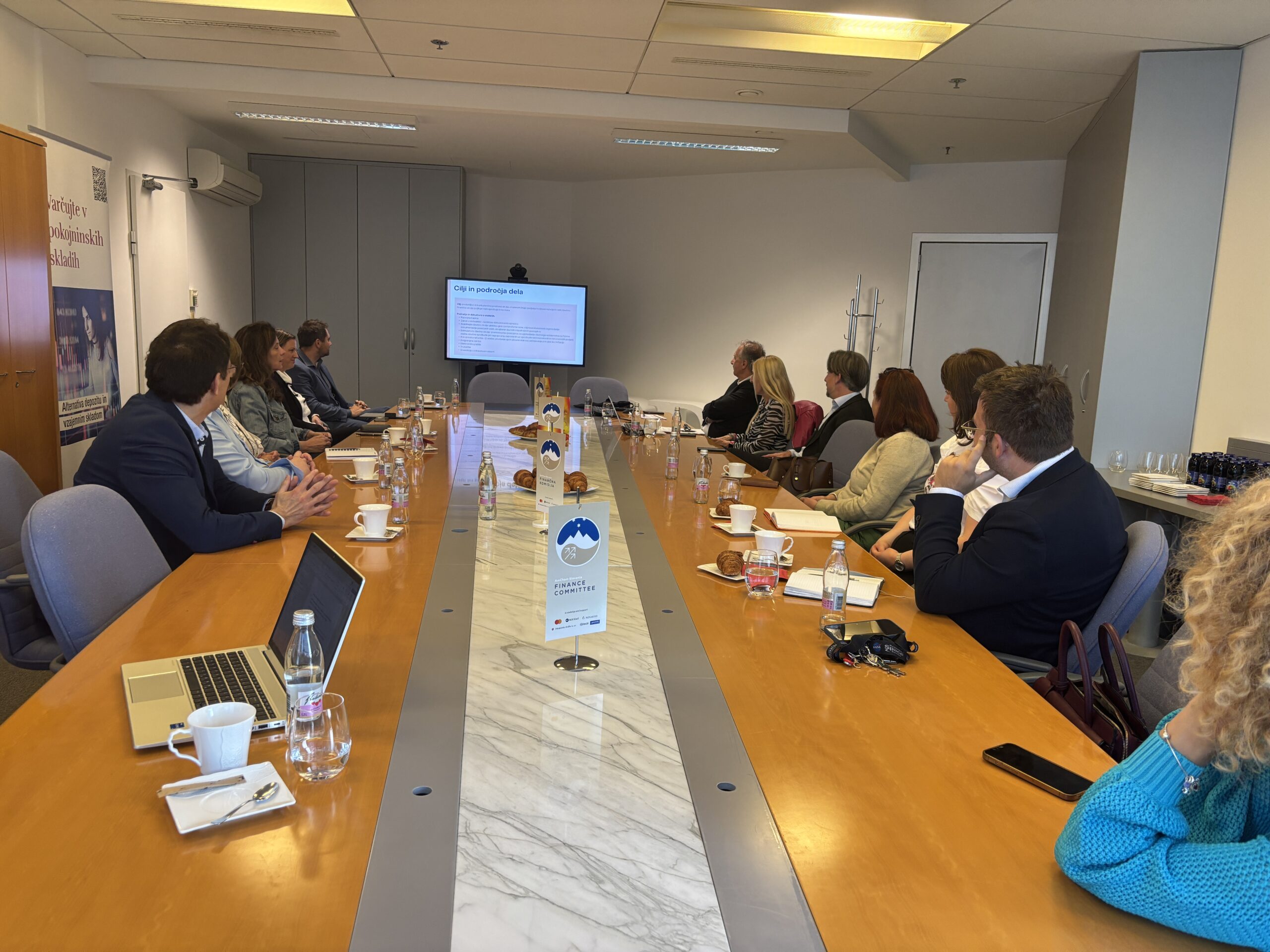Members of the AmCham Finance Committee met on May 15, 2025, at the premises of Pokojninska družba A, hosted by Žiga Vižintin, the co-chair of the committee. The meeting featured a prominent tax expert Ivan Simič, MSc from Simič & Partners d.o.o. The main topic of discussion was tax reform for development, which raises numerous questions regarding the taxation of individuals and legal entities, social contributions, and property taxation.
In his opening remarks, Simič emphasized that Slovenia is becoming an increasingly less stimulating tax environment, encouraging both businesses and individuals to seek more favorable tax conditions abroad. Among the main reasons for tax reform, he highlighted high tax burdens, which are significantly higher compared to neighboring countries. According to him, a shift towards tax relief is necessary, as current conditions hinder economic development and drive companies to relocate to countries with more favorable tax policies.
Simič presented specific proposals to improve the tax environment in Slovenia, including:
- Reducing the lowest income tax rate from 16% to 10% and the highest rate from 50% to 40%;
- Introducing a new income tax bracket with a tax rate of 10% for annual incomes exceeding 1,000,000 EUR;
- Lowering the corporate income tax rate from the current 22% to 15%;
- Simplifying tax procedures and introducing accountability for tax officials in cases of illegal decisions;
- Increasing the general VAT rate from 22% to 25%, while the reduced rate would rise from 9.5% to 10%.
During the meeting, the guest also highlighted challenges in property taxation, proposing the introduction of a 0.02% tax on real estate, cash, deposits, business shares, and securities, with property worth up to 300,000 EUR being exempt. The discussion also touched on the taxation of virtual currencies, with Simič proposing a 5% tax rate upon conversion to a bank account, while amounts up to 10,000 EUR would be exempt.
Participants agreed that tax reform is essential for improving the business environment in Slovenia. They emphasized that appropriate tax relief could increase the competitiveness of the Slovenian economy, thereby reducing the outflow of companies to neighboring countries such as Croatia, where taxation is significantly lower.

